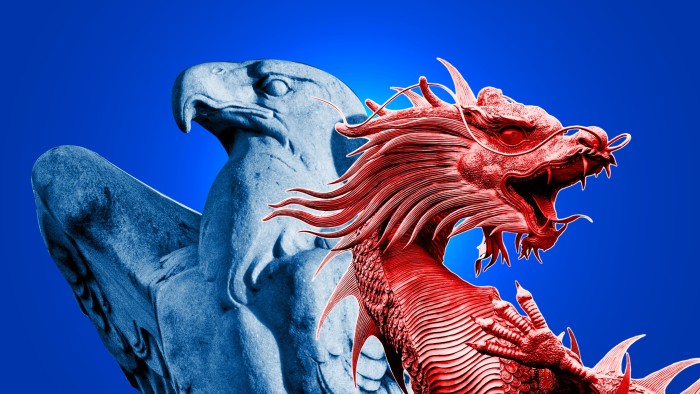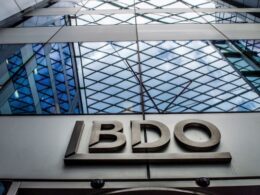President Donald Trump had a clear message for business leaders the day before a high-stakes summit with Xi Jinping that will determine if the US and China extend a trade war truce or plunge back into economic hostility.
“The world is watching,” Trump told executives at the Asia-Pacific Economic Cooperation forum in South Korea on Wednesday. “I think we’ll have something that’s very exciting.”
When Trump and Xi last met in 2019, their countries were also battling over trade, but this time, the stakes are much higher.
If their truce in the US-China trade war that Trump started in January expires in November, the world’s two biggest economic powers could reimpose tariffs of more than 100 per cent on each other, levels US Treasury secretary Scott Bessent previously likened to a trade embargo.
The Trump administration has said that China’s latest rare earth export controls are holding the global economy hostage, while Beijing said these were a response to the US putting Chinese groups on a trade blacklist.
One thing is clear, experts say — Beijing is now prepared to use its leverage in ways it has not before.
“For decades China talked about trade as a ‘ballast’ in the relationship. Now it sees trade as both a sword and a shield in a strategic competition,” said Sara Schuman, who was until recently a top US trade negotiator on China.
The shift has altered the balance of power between the countries, said a Chinese government-affiliated scholar. He said they had reached a “dynamic equilibrium” that would continue until one side was able to break the other’s chokehold on critical technologies such as rare earths or chips.
“Who will break the equilibrium? It depends on . . . who is more quick to develop new skills,” he said.
For Xi, the summit will provide a chance to show he can manage the chaos connected to dealing with Trump. The US president will almost certainly sell any deal as another example of his negotiating skills.
Trump’s summit with Xi on Thursday comes at the end of an Asia tour in which he has charmed allies and been feted in return, including by Japan’s new Prime Minister Sanae Takaichi and South Korea’s President Lee Jae Myung.
But Ryan Hass, a China expert at the Brookings Institution, cautioned that Xi would “not be swayed by charm or persuasion”.
“Unlike other world leaders, Xi will not play along with the pretence that he and Trump have a close personal relationship. For Xi, the meeting is about business, not bonhomie,” Hass said.
After talks in Malaysia last weekend, Bessent said China appeared willing to delay implementation of its rare earth export control regime for a year, which he added would be likely to allow the two sides to extend their trade war ceasefire.
US and Chinese officials have revealed parts of the expected deal. China will buy US soyabeans, which will help struggling American farmers, while Trump on Wednesday said he would cut the 20 per cent tariff he put on China over its export of fentanyl ingredients.
Beijing had previously offered to take action on fentanyl ingredients but the US insisted on seeing results before cutting tariffs. The tentative deal suggests willingness to compromise on both sides.
“It’s a chicken and egg situation about who needs to make the first move,” said Schuman, now head of the international trade practice at Beacon Global Strategies. “When the two leaders meet in person . . . they’ll be able to size each other up and decide if there’s a way to break the stalemate.”
Sarah Beran, a former top White House China official, said a “modest list of deliverables” would return the relationship to where it was before the most recent escalation in tensions over rare earths.
“Both sides are using the meeting to temporarily stabilise the relationship, slow the pace of decoupling, and minimise the economic impact of that decoupling,” said Beran, partner at consultancy Macro Advisory Partners.

Diplomats, executives and experts in Beijing said one question was what Xi wanted in return for delaying the rare earth restrictions, buying soyabeans and allowing American investors to take control of the social media app TikTok in the US.
It was not clear if the US had agreed to pause new export controls that could impact Chinese companies, said Craig Singleton, a China expert at the Foundation for Defense of Democracies.
US allies are also watching closely to see if Trump gives ground on Taiwan. Beijing wants Trump to change the standard US language on Taiwan from not supporting Taiwanese independence to opposing any such move. Trump previously said it might come up, but on Wednesday he told reporters: “I don’t know that we will even speak about Taiwan.”
For Xi, the summit may help pave the way to securing a visit by Trump to China early next year, which could possibly be reciprocated with a visit by the Chinese leader to the US, according to a senior diplomat in Beijing.
Trump is seen as the least hawkish official in his administration on China, and Beijing is keen for a chance for Xi to have extended one-to-one talks with the US president, according to one person familiar with the situation.
During Trump’s first term, the two sides agreed only a narrow “phase one” deal that mostly covered Chinese commitments to purchase more US agricultural products instead of a broader pact on structural issues.
Beran said the deal Trump and Xi were likely to agree on Thursday would also “not address the structural tensions in the relationship”.
Regardless of how the two leaders describe any agreement on Thursday, experts cautioned that the underlying tensions in US-China relations meant any outcome was very unlikely to stand the test of time.
“None of Trump’s and Xi’s previous five meetings have led to lasting breakthroughs or durable understandings on the direction of the relationship,” said Hass. “This meeting is unlikely to break that pattern.”
Source link









